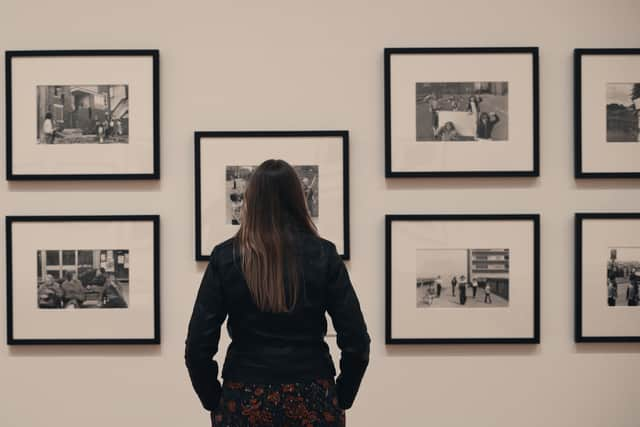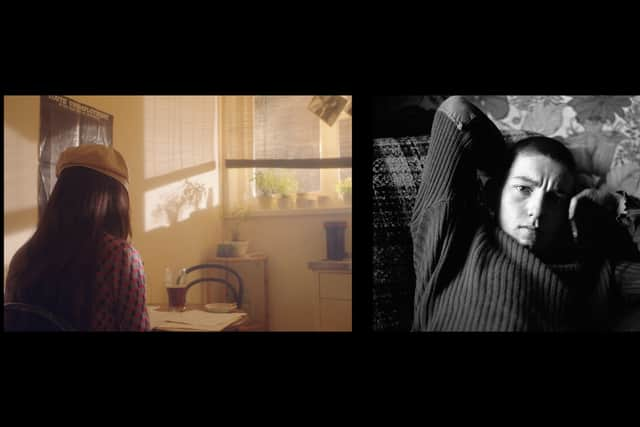Documentary honours forgotten South Shields-born photographer Tish Murtha
and live on Freeview channel 276
When she was taking photographs of life in the North East in the 70s and 80s, Tish Murtha was known as the ‘demon snapper’- hellbent on capturing life in Newcastle’s West End as she experienced it.
“I want to take photos of policemen kicking kids,” she told photographer David Hurn upon her application to the documentary photography course at Newport College of Art in 1976.
Advertisement
Hide AdAdvertisement
Hide AdBorn in South Shields in 1956, Tish eventually moved to Elswick along with her nine siblings. Newcastle is where Tish’s education truly began. “I realised she had to be so tough from such a young age, or she just wouldn’t have survived,” said Ella, Tish’s daughter.


Elswick was suffering. But after Tish found her first camera in an abandoned house she seemed to find her fight- quite literally. She initially carried it around without film to scare off dodgy men.
Finding that camera dictated the course of her life. With it, Tish was able to document the realities of life in working-class Britain through the stark photographs she took of the people around her.
“She captured the human spirit and the ability of imagination and humour to overcome the most tragic and poverty-stricken environments,” said Ella. “Her critical eye was born out of her own difficult circumstances, and it is this empathy, trust, and connection that make her work so special.
Advertisement
Hide AdAdvertisement
Hide Ad“You can almost step into each scene. I think people are connecting with Tish and the stories that she had seen unfolding in front of her eyes because, for a lot of people, it is like looking at themselves. They were those kids.”
Tish’s work has always been special. But, tragically, she wasn’t able to find acclaim until after her death at 56- despite so many of her peers finding her work unparalleled.


Ella is the driving force behind her mother’s archive and their relationship is central to the latest step in Tish’s journey. A feature-length documentary about Tish’s life directed by Paul Sng was released in 2023- and is soon to be released on BBC Four.
Advertisement
Hide AdAdvertisement
Hide Ad“I was just determined to put my mam’s page back in photographic history,” said Ella. “She always existed in it, but her page was lost, and I couldn’t let that happen.”
Like so many others, Paul Sng saw his own childhood reflected in Tish’s photographs- something which led him to making the film. Ella said no at first, having been approached before and finding the process too invasive. But Paul was persuasive.
“Tish was able to show inequalities but also show the joy in those communities. At times it was very tough to grow up in a community like that, particularly during Thatcherism,” said Paul. “But, there was also joy.
“Tragedy and comedy do sit next to one another and you sometimes have to find those moments to get through the hard times. So, I think people who look at the pictures can often recognise that and I think they can recognise Tish’s empathy. That she was able to get so close to these people because she was one of them.”


Advertisement
Hide AdAdvertisement
Hide AdSome of the most beloved of Tish’s photographs were taken nearly fifty years ago, but the politics cannot be separated from that of today. Paul recalls the first screening in Newcastle where the audience booed as soon as Margaret Thatcher appeared.
“Although it's a film about someone that was making work in the 70s and 80s, it’s very circular in terms of what she was documenting- an inequality that never really went away,” continued Paul. “People point towards New Labour and all the things they did, but they didn’t eradicate poverty. They could have- but they didn’t.
“If anything, things have gotten worse since Tish’s time.”
Tish explores the life and circumstances surrounding Tish Murtha’s life, explored by Ella who goes on a journey to rediscover her mam through those who knew her. Along with her photographs, sections of Tish’s diaries narrate the film- read by Maxine Peake.
“It’s a shame we’re not making a different film that was celebrating her while she was still alive but I hope she’d really appreciate all of the love that’s out there for her and respect,” said Paul. “Because she was brilliant and she deserved more from the arts world and deserved more from society.”
Advertisement
Hide AdAdvertisement
Hide AdFor Ella, the documentary has established a permanent record of Tish’s work and achievements in the face of such hardship.
“I wish things hadn’t been so difficult for her and that she was appreciated in her lifetime,” concludes Ella. “But I am proud that she didn’t compromise herself or her values and is being recognised now.”
Tish will be shown on BBC Four on Monday 1 April at 9pm.